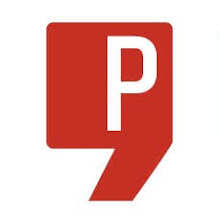A checklist seems like a sensible option. Here's what we've come up with.
Interviews checklist
Whether you’re the interviewer or the interviewee, interviews are nervewracking. This handy checklist will help you put your interviewee at ease and get a good story or case study.
Before the interview – be prepared
If you can meet the interviewee in person that’s best but if not you might need to settle for a phone interview. Make sure that you’ll have somewhere quiet where you can freely have your conversation. If you’re meeting them in person, try to go to somewhere they’ll feel comfortable and where you might pick up some more information about them.
· Think about how and where you’re going to do it.
· Research the person and their organisation.
· Find out the facts of the story.
· Write your questions beforehand.
· Make sure your camera/dictaphone batteries are charged, make sure you’ve got a pen and notepad.
· Start with something easy.
· Build on it, reflecting back some of their answer in your next question.
· Put the tricky questions in the middle.
· Try to have a ‘wildcard’ question that will be different from everyone else’s.
· End on a light note or ask about the future.
During the interview
· Introduce yourself and say what the story’s about and who it’s for.
· Build a rapport, look for something in common.
· If you’re going to record, tell them you’re going to record it.
· Turn camera/dictaphone on.
· Ask your first question and LISTEN
- nod, use open body language
- make eye contact
- Make positive noises (but only if you’re not recording).
· Try to get your next question to flow from the previous answer.
· Be natural.
· Probe – if they haven’t answered fully, ask again from a new angle.
After the interview
· Check their details – full name and spelling, name of organisation, job role (if appropriate).
· Get their contact details (mobile, email, website) in case you need more information.
· Tell them what’s going to happen next. When and where can they see the story?
· Think about the most interesting/exciting thing. What was the one thing that stood out or stuck in your mind – this is what you should lead with.
· Write it up/edit as soon as possible, while it’s still fresh in your mind.
· Check any facts and get any missing information.
Good luck!
Find out more about Poached Creative's training and communications services.


